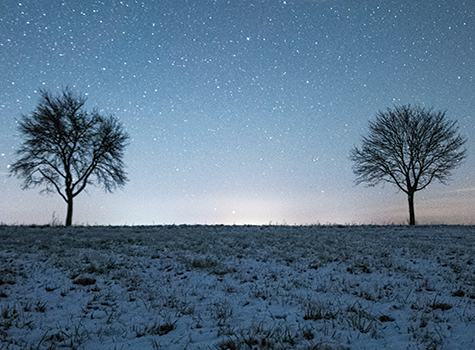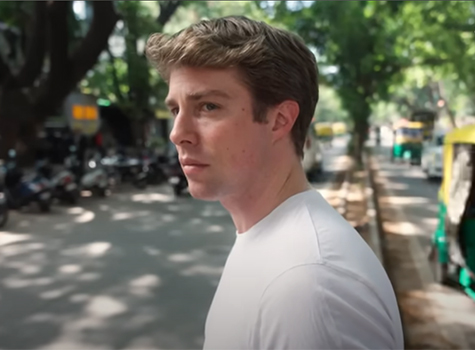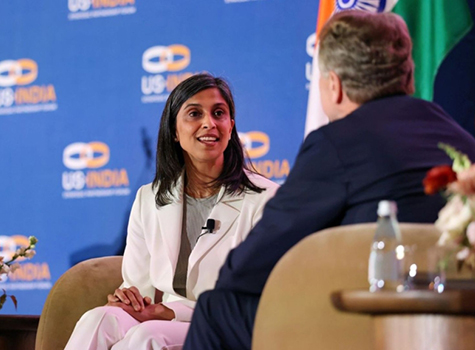
My mother is from Ajmer in Rajasthan, but I was unaware of the Jaipur (near Ajmer) Literature Festival. I have since learned that it began almost twenty years ago with the mission of giving voice to “a diverse mix of the world’s greatest writers, thinkers, humanitarians, politicians, business leaders, sports people and entertainers on one stage to champion the freedom to express and engage in thoughtful debate and dialogue”, according to its website (jaipurliteraturefestival.org/about).
This September was the inaugural JLF North Carolina. I missed the opening day at the North Carolina Museum of Art in Raleigh where Jhumpa Lahiri spoke. I’ve loved reading her for decades and in fact have reviewed in 2006 Mira Nair’s The Namesake based on her novel of the same name – both novel and film are fabulous.
My highlights for the main day of the event, Saturday, September 28, 2024 at the University of North Carolina in Chapel Hill, were an eloquent conversation with Shashi Tharoor, Suketu Mehta and Sayantani Dasgupta describing their lives as North Carolina authors of Indian birth, and a unique and moving dance and music performance by the Aseemkala Initiative, a group of physicians and artists that use dance and music to depict sometimes stark medical realities.
Shashi Tharoor will be familiar to many readers as a prolific writer of history and fiction, and member of the Indian Parliament for over ten years. Among his books are Inglorious India: What the British Did in India (2017), which was the basis of his talk. Hosted by Duke University historian Avrati Bhatnagar, he engagingly shared his polished thoughts about how he came to write the book, itself an interesting story of his isolating himself in a Bhutanese mountain palace, and critique the British Raj. His wide-ranging discourse included topics like reparations (no, he really wants a heartfelt apology); British museums as a “chore bazaar” showing off to the grandkids of conquerors what they “purloined” from the visitors’ grandparents; the importance of understanding and not denying the past, but taking responsibility for modern times and “decolonizing the mind”; and of most interest to me, his deconstructing the British “gifts” of the English language, judicial system, and railways.
Writers Suketu Mehta (This Land is Our Land, Maximus City: Bombay Lost and Found) and Sayantani Dasgupta (Brown Women Have Everything) shared heartfelt and sometimes funny stories reflecting their immigrant experiences. One, Dasgupta, is a recent resident of coastal North Carolina and the other, Mehta, lives in Orange County. Both shared immigration stories reflecting both the promise and difficulty of adopting America as home.
Starting with a musical introduction, Aseemkala Initiative (aseemkala.org) went on to emotive dances. They used traditionally-rooted dance, sometimes quite modern, to convey powerful and creative shakti healing, cancer diagnoses, and end-of-life scenarios, among others. I have never seen anything like this and applaud Aseemkala for their vision to use the arts to ground and help heal.
It was all topped off with food from Vimala’s Curryblossom Café and dancing to the beats of a DJ. The intellectual, literary, and artistic confluence made for a most enjoyable and insightful time. I’m delighted that JLF North Carolina is with us now and, hopefully, will return annually to the Triangle area.
Dilip Barman is a lover of culture and teacher of math and vegan food/nutrition teacher. Check out his monthly show somanycooks.com.
Contact: dilip@trianglemathinstitute.com



